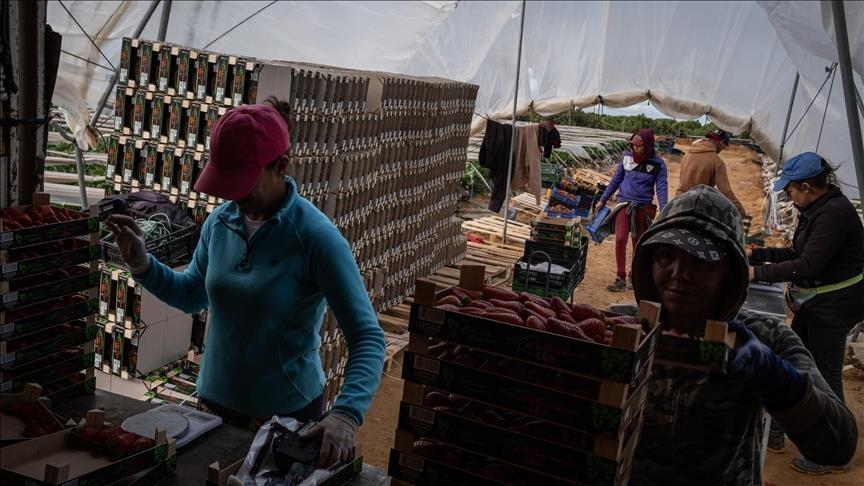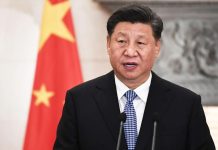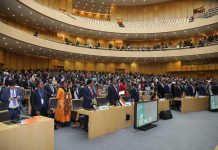Africa-Press – Eritrea. Modern slavery happens in nearly every country in the world, regardless of ethnicity, culture, or religion. In fact, more than half (52%) of all forced labor and a quarter of all forced marriages can be found in upper-middle income or high-income countries, according to the International Labor Organization (ILO).
In the last few years especially, the number of people in modern slavery has risen significantly. In 2021, 10 million more people were in modern slavery compared to 2016 global estimates, according to the organization.
In that same year, 50 million people were living in modern slavery, including 28 million in forced labor and 22 million in forced marriages, said the ILO. The ILO reported that most cases of forced labor (86%) are found in the private sector.
Forced labor in sectors other than commercial sexual exploitation accounts for 63% of all forced labor, it said, while forced commercial sexual exploitation represents 23% of all forced labor, with nearly four out of five of those in forced commercial sexual exploitation being women or girls.
State-imposed forced labor accounts for 14% of people in forced labor, said the ILO. Nearly one in eight of all those in forced labor are children (3.3 million), with more than half estimated to be victims of commercial sexual exploitation, it said.
Aidan McQuade, one of the leading antislavery voices and the author of the book Ethical Leadership: Moral Decision-making Under Pressure, told Anadolu that the increase is due to the political economy, outdated laws, customs, and “the policies which facilitate this.”
Several factors played a significant part in creating an environment in which people can be exploited and enslaved, said McQuade, adding that tight visas make migrant workers particularly vulnerable to their employers being exploited.
The 28 million people estimated to be in forced labor are enslaved within the supply chains and operations of a lot of private businesses which operate on high streets and fashionable shopping districts, he said.
For instance, in South and Southeast Asia, there are “dreadful human rights abuses,” including slavery within almost every stage of the clothing process, with most of the resulting garments ending up being worn by “people like you and me.”
Some of the electronics workshops in Southeast and Central Asia are known to “significantly exploit” people, including children, said McQuade, adding that many computers and cellphones are in fact produced by slavery.
The world’s fishing boats are staffed by people who have been enslaved under the most brutal conditions, where murder is not an infrequent punishment, added McQuade, who is also a former director of Anti-Slavery International.
According to him, there is also significant exploitation and forced labor within the maritime transport industry. The whole forced labor system is “exploiting the desperation of very poor people” who are trying to work their way out of poverty, he said.
Ideologically committed to slavery
Policies, practices and laws to protect people who are at risk of enslavement “must be put in place,” said McQuade. But instead, “what we’re seeing is a lot of lip service, from the governments of the world, from the elites of the world, who are simply not putting in place the necessary policies and laws in order to protect poor people from forced labor.”
He said governments around the world are not doing enough due to ignorance that leads them to confuse the issue of trafficking with the issue of smuggling. Smuggling, he explained, is breaking immigration regulations while human trafficking is putting people into “situations of slavery.”
And yet “these two words are used almost interchangeably by a lot of leading politicians, which indicates a fundamental lack of understanding of the problem. And if you don’t understand a problem, you can’t come up with solutions to it,” added McQuade.
According to him, certain countries have established for themselves what they think are competitive economic advantages based on the fact that they allow a portion of the population within their borders to be exploited. Slavery tends to be imposed on sectors of society against whom the more powerful sectors have prejudices, said McQuade.
In other words, slavery is unlikely to become a political issue if it is inflicted on people against whom prejudices exist, as this way, there will be no groundswell of public opinion demanding that politicians do their jobs.
However, some governments are even ideologically committed to slavery as they have established political economies founded on state-sponsored slavery, he argued.
For example, in North Korea, Myanmar, and Eritrea, the entire political economy is centered and based upon the enslavement of large sections of the population, added McQuade.
Western laws fueling slavery
McQuade suggested that “a state model for slavery” applies to much of Western Europe. This was evident when in 2015, the United Kingdom introduced the Modern Slavery Act, which called for certain protections and certain new offenses in relation to slavery. But then in 2016, it came up with the Immigration Act, which introduced the offense of illegal working.
Most people who are enslaved in the UK would come under the category of illegal working within that new law, which means that those who are enslaving them then have an additional power of control over them, said McQuade.
“The UK, interestingly, at the moment is making its policy in relation to slavery more coherent but is being more supportive of slavery as a result of that,” he said.
“If you look at the treatment of migrants and the introducing of the offense of illegal entry to the UK, this is all a very xenophobic set of policies which just doesn’t really care about people who are victims of slavery anymore.”
According to the ILO, migrant workers are more than three times likely to be in forced labor than non-migrant adult workers. Guy Ryder, a former ILO director-general, said it is “shocking that the situation of modern slavery is not improving” and that “nothing can justify the persistence of this fundamental abuse of human rights.”
Many of the people who are coming out of Africa and trying to get across the Mediterranean are going through Libya. “There’s little law. There’s little rule of law there,” said McQuade.
There are multiple militias running around “enslaving” particularly migrants from both the south in sub-Saharan Africa and from the Horn of Africa, but also from other parts of the world who are trying to transit through Libya into Europe, he noted.
According to McQuade, the European Union is supporting Libyan authorities keeping migrants from traveling across borders. As a result, he said, it is not providing sufficient routes for these migrants and in turn is facilitating them into situations of exploitation in countries such as Libya.
Eradicating modern slavery
Addressing modern slavery in a comprehensive way requires a comprehensive program that firstly looks into cancelling debt among the slavery-vulnerable populations across the globe, said McQuade.
He also said no country anywhere in the world should be allowed to have a system of visas which tie the employment of migrant workers to specific employers, giving those specific employers the power to exploit and abuse those workers.
“That’s something which should be made unlawful right across the world,” he stressed.
Educating vulnerable communities about slavery as well as enabling them access to trade unions are other important steps that countries should take to eradicate slavery, he added.
For More News And Analysis About Eritrea Follow Africa-Press







